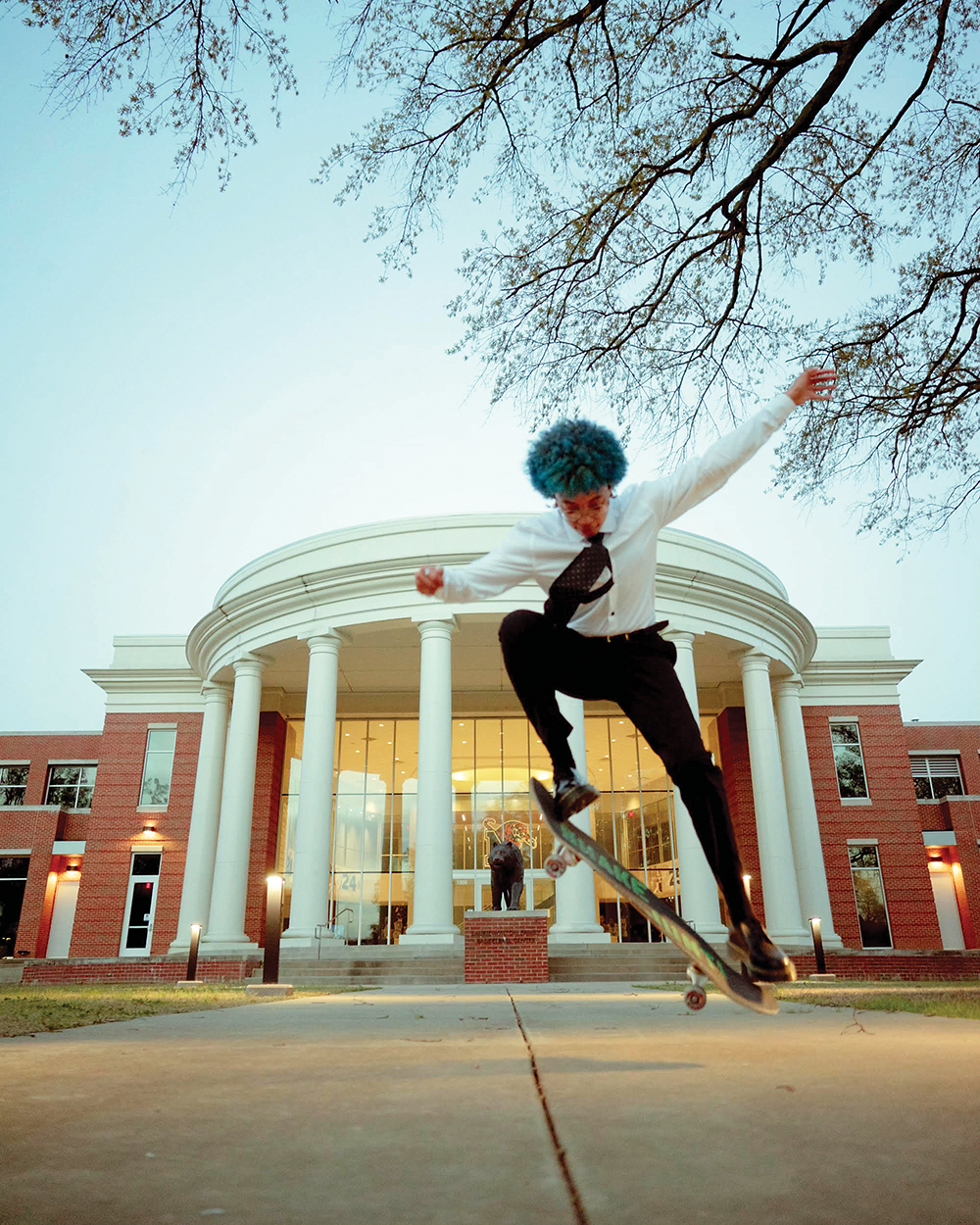If you ask any skater what their favorite moment in skate history is, you’re bound to elicit a number of responses. Some mark the release of Tony Hawk’s Pro Skater as their entry point to the skate scene. Others may proclaim that the 2020 Summer Olympics sparked an epoch in modern-day history as skateboarding made its way to Beijing.
For Alexa Zabella, Ledger Smith’s 685-mile journey from Chicago to Washington, D.C., by way of roller skates stands out the most. “Roller Man’s” destination was the Lincoln Memorial, which served as the backdrop for Martin Luther King Jr.’s “I Have A Dream” speech.
Smith joined thousands who stood in solidarity to protest injustice in the African-American community. This moment seems to serve as the perfect prelude when looking at the events that led Zabella to create Queer Skate Memphis, a skate group designed as a safe space for “queer and BIPOC skaters.”
In the summer of 2020, the Bluff City-based skater organized the Memphis rollout for Worldwide Rollout Day, where participants roller-skated, biked, and boarded through Downtown Memphis as a way to stand in solidarity with the Black Lives Matter movement.
Zabella’s group is just one example of ways that queer skaters are looking to navigate the skate scene in Memphis.
For Malia Brown, it’s been no problem finding camaraderie and solace in their online queer skate community. It’s actually a place where they feel like they’re not the minority. However, when Brown goes to skate parks, they’re instantly made aware of the current landscape.
“It’s literally just cis men just skating around,” Brown says. “Even though there’s such a large community at the skate park, it’s like I’m presumably one of the only queer skaters there.”
Skateboarding has a reputation for fostering a sense of community; however, in an article for Vice, Max Dubler argues that it has also been a sport that is heavily defined by “macho toughness” and “male heterosexuality,” which Brown says can be alienating.
Brown can pinpoint a few moments in their skate journey in Memphis that felt less alienating, such as the time they and other queer skaters placed third in a skate competition or when other skaters organized a police brutality protest on Go Skate Day. While these were moments that were comforting for Brown, they still long for a more inclusive space for queer skaters.
Brown remembers the day that their crew placed higher than some of the male-comprised skate crews in the competition. In fact, Brown still calls on some of the skaters in their crew like Jessica Davis to the park when they’re wanting to skate. But Brown says that skateboarding doesn’t necessarily have to be a community-centered thing.
In fact, for Davis, skating has been something that she approached alone.
The Disney show Zeke and Luther sparked her infatuation with skating, resulting in her creating a makeshift board out of her pillows and turning her couch into a ledge.
There were limitations that resulted in her solo approach to the sport, such as not being able to street skate as a young girl, which redirected her to parks such as Tobey Park in Memphis. “It’s where I learned the most. I learned how to hop down some stairs and some more stuff,” she says, simultaneously demonstrating some of her favorite tricks on her fingerboard.
Brown and Davis argue that there are pros to approaching the sport alone, such as the luxury of going at your own pace when learning a trick. But Brown also states that nothing compares to landing that trick and having fellow skaters be just as excited as you are.
It’s a luxury that not many are afforded to choose how they approach skating, and while celebrities like Briana King are working to organize inclusive community events, it can be harder for local skaters with smaller platforms.
Memphis has the space for it, Brown explains. They even have the skaters for it. However, they and other skaters are calling on the entire community for support.
“More women skaters, more queer skaters, more people of color skaters. Just trying to stray away from the cis, white men being all over the place.”
